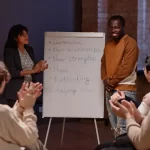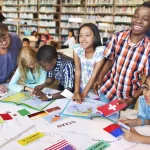Cultivating Friendships: The Key to Enhanced People Skills
In a world that often emphasizes individual achievement, it’s easy to forget the power of genuine relationships. Cultivating friendships not only enriches our lives but also significantly enhances our interpersonal skills. The ability to connect with others effectively can lead to personal and professional success. This article explores actionable strategies for improving your people skills by focusing outward and prioritizing relationships.
The Importance of Friendships in Personal Development
Friendships serve as a cornerstone of emotional support and personal growth. Here’s why cultivating friendships is indispensable:
- Emotional Support: Friendships provide a network of support during challenging times, offering encouragement and perspective.
- Networking Opportunities: Good friends can introduce you to valuable connections that may help you grow professionally.
- Enhanced Communication Skills: Every interaction with a friend presents opportunities to improve your communication and people management abilities.
- Increased Confidence: Strong friendships foster a sense of belonging, boosting self-esteem and confidence in social contexts.
Strategies to Cultivate Friendships that Enhance People Skills
1. Actively Listen
People appreciate being heard. One of the most effective ways to forge strong friendships is by practicing active listening. This involves:
- Maintaining eye contact to demonstrate engagement.
- Asking follow-up questions to show that you are genuinely interested.
- Summarizing what the other person has said to ensure understanding.
Active listening not only enriches conversations but also builds trust and mutual respect.
2. Show Genuine Interest
When you engage with others, displaying genuine curiosity about their lives can go a long way. To show interest:
- Inquire about their hobbies, goals, and experiences.
- Share your own relevant anecdotes to create a reciprocative dialogue.
- Perform little acts of kindness based on what you learn about them.
By showcasing your interest, you strengthen the bond and demonstrate that you value the relationship.
3. Be Approachable
Creating an environment where people feel comfortable approaching you is crucial for cultivating friendships. To enhance your approachability:
- Maintain open body language, such as uncrossed arms and a welcoming stance.
- Smile genuinely to create a warm atmosphere.
- Engage in small talk to break the ice before diving into deeper conversations.
When people sense your openness, they are more likely to initiate conversations and build friendships.
4. Participate in Group Activities
Joining clubs, community groups, or social events provides numerous opportunities to meet new people. Here are ways to maximize these experiences:
- Choose activities that align with your interests to attract like-minded individuals.
- Be an active participant by contributing your ideas and energies.
- Nurture new relationships by following up with potential friends after the activity.
Group activities create shared experiences that can reinforce bonds and foster camaraderie.
5. Offer Help and Support
Being supportive dramatically contributes to the depth of a friendship. Consider these approaches:
- Be a resource during stressful or challenging times.
- Celebrate your friends’ successes, no matter how small.
- Be available for advice or just listening when they face dilemmas.
Offering help not only strengthens the connection but also solidifies your role as a reliable friend.
Developing Emotional Intelligence Through Friendships
Friendships provide an ideal platform for enhancing emotional intelligence, an essential component in social interactions. Here are ways to develop this skill:
- Self-Awareness: Reflect on your own emotions and how they influence your interactions.
- Empathy: Practice understanding and validating the feelings of others.
- Social Skills: Utilize friendship dynamics to understand various social cues and responses.
By developing emotional intelligence, your people skills will naturally improve, making it easier to build and maintain friendships.
Building Resilience in Relationships
Cultivating friendships isn’t without its challenges. Disagreements or misunderstandings can arise. Here’s how to develop resilience in relationships:
- Communicate openly about any issues that arise to avoid misunderstandings.
- Practice forgiveness and let go of grievances to maintain harmony.
- Respect differences and embrace the unique qualities that each friend may bring to the table.
Resilience fosters stronger connections and is a vital skill in maintaining lasting friendships.
Cultivating friendships is a powerful way to enhance your people skills. By actively listening, showing genuine interest, being approachable, participating in group activities, and offering support, you can build meaningful connections. Also, developing emotional intelligence and resilience in relationships plays a significant role in nurturing these friendships. Remember, the impact of solid friendships extends beyond personal joy; they are critical for professional success and overall life satisfaction. Focus outward and watch your interpersonal skills flourish!
“`








